
|
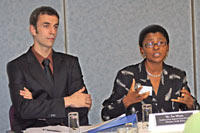
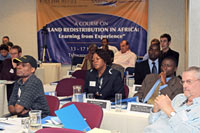
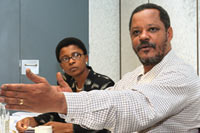
|
Background
In several countries in Southern Africa, land redistribution is a high political and development priority, because successful land reform holds the promise of significantly reducing poverty and increasing broad-based agricultural growth, while history demonstrates that unresolved land issues can easily lead to crisis and conflict. However, despite the fact that there is now a growing consensus on the "why" of land reform, there is controversy on the "how". On the ground, stakeholders are struggling with the modalities of implementation, while donors continue to be reluctant to invest in land reform because of its politically sensitive nature and the lack of demonstrated impact.
This regional course brought together various groups of stakeholders and practitioners to discuss land redistribution in Africa, a high political and development priority within the region. Among the issues that were addressed during the course were: land redistribution mechanisms; the relationship between land distribution and growth and poverty; institutions for sustainable development; and the current situations and future scenarios in the land reform process for participating countries as well as a review of international experience from outside of Africa.
Building on previous courses delivered as part of a multi-year initiative on Land Issues in Africa, this course focused on the dissemination of international experience (Brazil, India and the Philippines), local case studies, and open discussions focused on participant-led input. The course was delivered using a combination of e-learning tools, videoconferencing, and face-to-face workshop sessions.
|

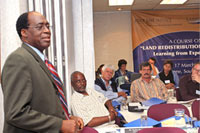
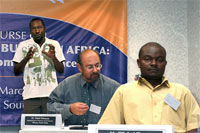
|
|






